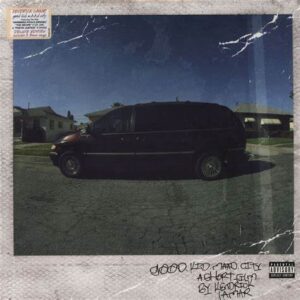
Kendrick Lamar’s second studio album ‘good kid, m.A.A.d. city’ dropped in 2012 with raw groove and pure black and poetic lyricism. The acronym ‘m.A.A.d’ has two meanings, ‘My Angels on Angel Dust’ and ‘My Angry Adolescence Divided.’
“In my opinion ‘good kid, m.A.A.d city’ was a masterpiece, not only at that time, but still currently. I believe this is Kendrick Lamar’s best piece and the reason I say this is because of the effect of this album,” said Elijah Townsend-Avella, a broadcast journalism student at Florida A&M University.
Not only did the album resonate with black people across the U.S., but it also became one of the coming-of-age soundtracks for many black people in America.
Lamar unapologetically shares the album as an autobiography, personal to his teenage experience in Compton. It became one of his most relatable pieces to date for black men who grew up in the ghetto.
“I personally find Kendrick Lamar’s music very relatable,” said Michael Boone, a political science student at FAMU.
For Boone, ‘The Art of Peer Pressure’ was the song that resonated most with him.
“I was always a good kid in a bad city. I was always in school and about my books, but not all of the people around me were,” Boone said. “I have always had those birds chirping in my ear to do things that steered away from my typical day to day.”
The album was labeled ‘gangsta rap’, mostly because of the experiences Lamar describes lyrically and by monologues in the tracks. ‘Gangsta rap’ has been defined by lyrics describing the reality of American ghettos and the lifestyles of violence and crime that are birthed in these environments, especially for black men.
“The album impacted my mental health because at a younger age it reminded me that the impact of my community does not have to be my reality,” Avella shared. “In a time where crime was the popular thing to do it reminded me to stay on my purpose because I know that I can make it out of all situations possible.”
“This album couldn’t have come at a better time,” Boone said as he reminisced about how the album helped him and a friend cope with loss at a young age.
“My friend had lost a family member that was very close to us both and I found the song ‘Sing About Me, I’m Dying of Thirst,’ Boone said. “That song put into words what I was feeling but couldn’t say.”
Lamar has always been known for his lyrics dedicated to the black experience, and in ‘good kid, m.A.A.d city’ he leaves no exception. Being a black man from Compton, the album is a love story to his black experience, studded with monologues of his reality that taught him lessons to live by.
“This project is more than an album to me, it’s a story being told by someone who looks like me, grew up like me, and inspired to be more than a statistic,” said Avella.
Considering this was only Lamar’s second studio album, confidence was the key to its success and platinum status. The sultry album was confidently composed with star features like Dr. Dre and Jay-Z, down to the R&B style instrumentals behind his hard and fast paced lyrics about “Poetic Justice” and “The Art of Peer Pressure.”